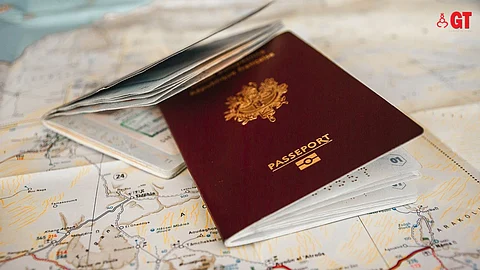

The Overseas Citizenship of India (OCI) tangle just got knottier for Goans with foreign passports. The recent ‘mysterious’ surfacing of a corrigendum issued by the Ministry of External Affairs (MEA) on April 30 may play a spoiler in their bid to register themselves as OCI.
Notably, it has come after a brief spell of relief, when the High Court of Bombay at Goa, on May 6, had delivered an order based on a circular issued by the MEA on April 4.
The statement put out by the ministry allowed ‘revocation certificate’ issued on handing over of Indian passport to authorities to be used in lieu of ‘surrender certificate’ for OCI registration.
The court gave the ruling earlier this month unaware of the existence of the corrigendum issued by the MEA on April 30, which states that the matter is “under the consideration of the Union Home Ministry”.
This puts the entire issue under a different light and has led to the government and the opposition to spar over the real intention for concealment of this crucial information.
It raises the question of why the ministry about-faced on its earlier circular. Another query dogging everyone is: Why was the court not informed about the corrigendum sent out almost a week before its verdict?
It raises the question of why the ministry about-faced on its earlier circular. Another query dogging everyone is: Why was the court not informed about the corrigendum sent out almost a week before its verdict?
Many are asking whether it was kept under wraps to influence the voting in the Lok Sabha elections. The most pertinent of all queries is whether it amounts to suppression of ‘material facts’ and can it be taken as contempt of court.
Section 3 of the Indian Evidence Act, 1872 (IEA) defines ‘material facts’ as those facts which are “cardinally” connected with the issue and have capacity to escort the decision of the court in a case.
Going by this definition, the MEA’s April 30 corrigendum, about which the court was not informed, is a fact with “cardinal” connection to the subject matter of OCI registration case.
Under the Indian law, such suppression or concealment of material facts is dealt with contempt of court as it may be seen as interference in the administration of justice.
However, the contempt of court will stick only if the registration applications of the petitioners in the OCI case is rejected on the basis of the corrigendum.
In such an event, the court may say the government held back the information on corrigendum to turn down the applications of the petitioners.
The contempt of court will stick only if the registration applications of the petitioners in the OCI case is rejected on the basis of the corrigendum.
However, if the government approves the OCI registration of the petitioners based on the High Court order or the April 4 circular, as a special case, they may be able to escape contempt of court.
The whispers in the hallowed corridors are that an aggressive push is being made to ensure the OCI applications of the petitioners in the case get through easily.
This takes the issue back to square one. Applicants, who have not approached the court for their Indian passport being revoked without a surrender certificate being issued, may be denied OCI registration on the basis of the corrigendum.
The timing of the MEA circular followed by a corrigendum, and then the court being kept in the dark about the corrigendum; it all seems intriguing. Was it done to swing votes in government’s favour?
Another question is whether OCIs can be granted on an ‘incorrect’ judgement emerging from suppression of material facts. Would such an OCI be taken as valid?
Another question is whether OCIs can be granted on an ‘incorrect’ judgement emerging from suppression of material facts.
The best strategy for the government advocate would be to own up to their mistake before the court and explain the slippage due to not noticing the corrigendum.
There is also a big question mark on who has locus standi to file contempt of court in this case. When the court reopens on June 10, it can initiate a Suo Moto contempt case against the government for misleading it to influence the decision in the case.
Any order by the High Court should be, in the larger context of Goans with Portuguese passports, to remove the procedural ‘hurdle’ in acquiring an OCI card rather than narrowing it down to granting overseas citizenship to just a few petitioners in the case.